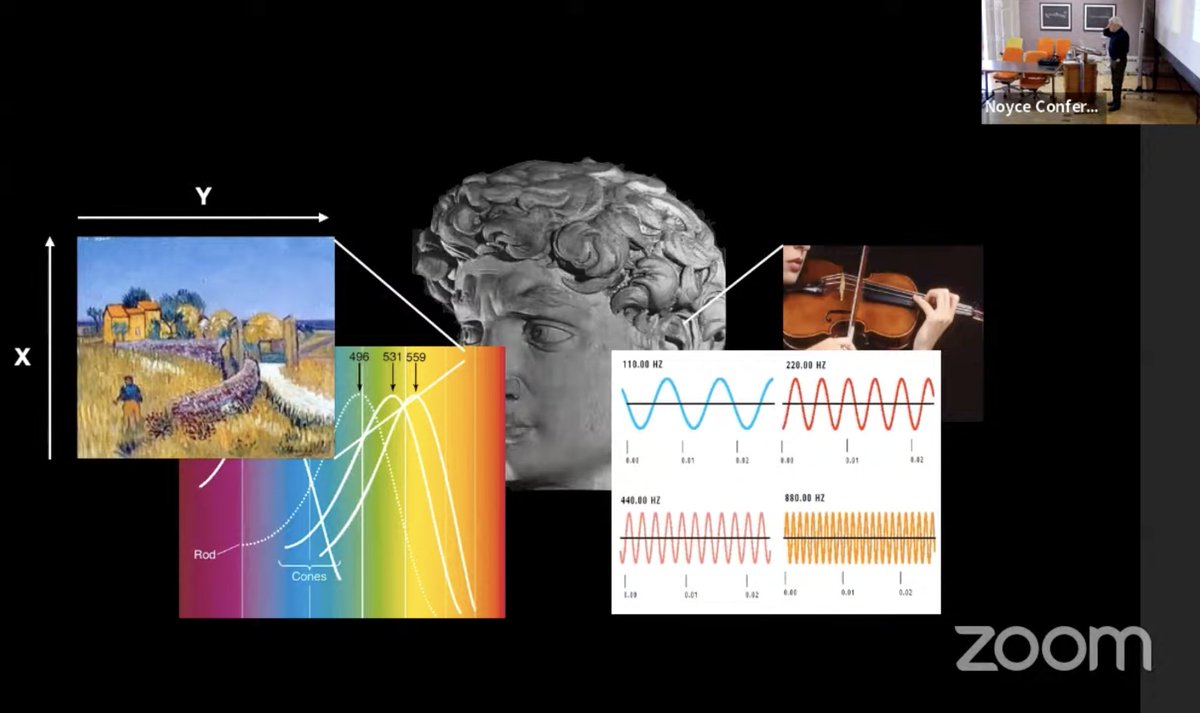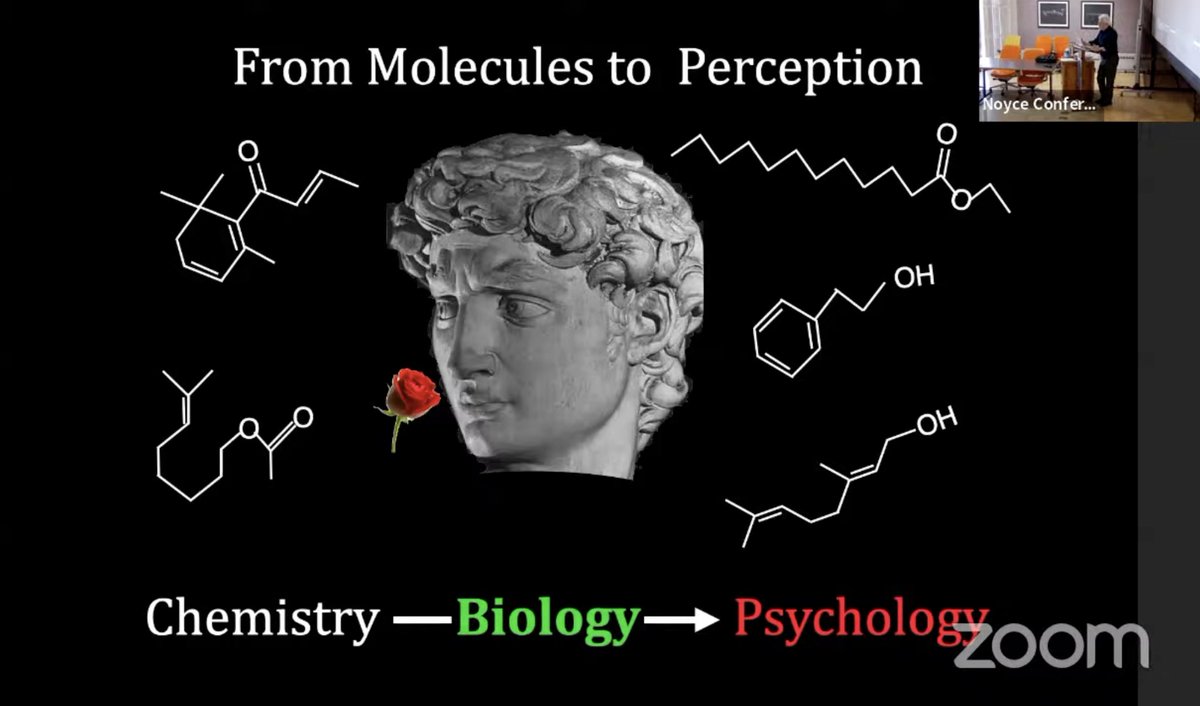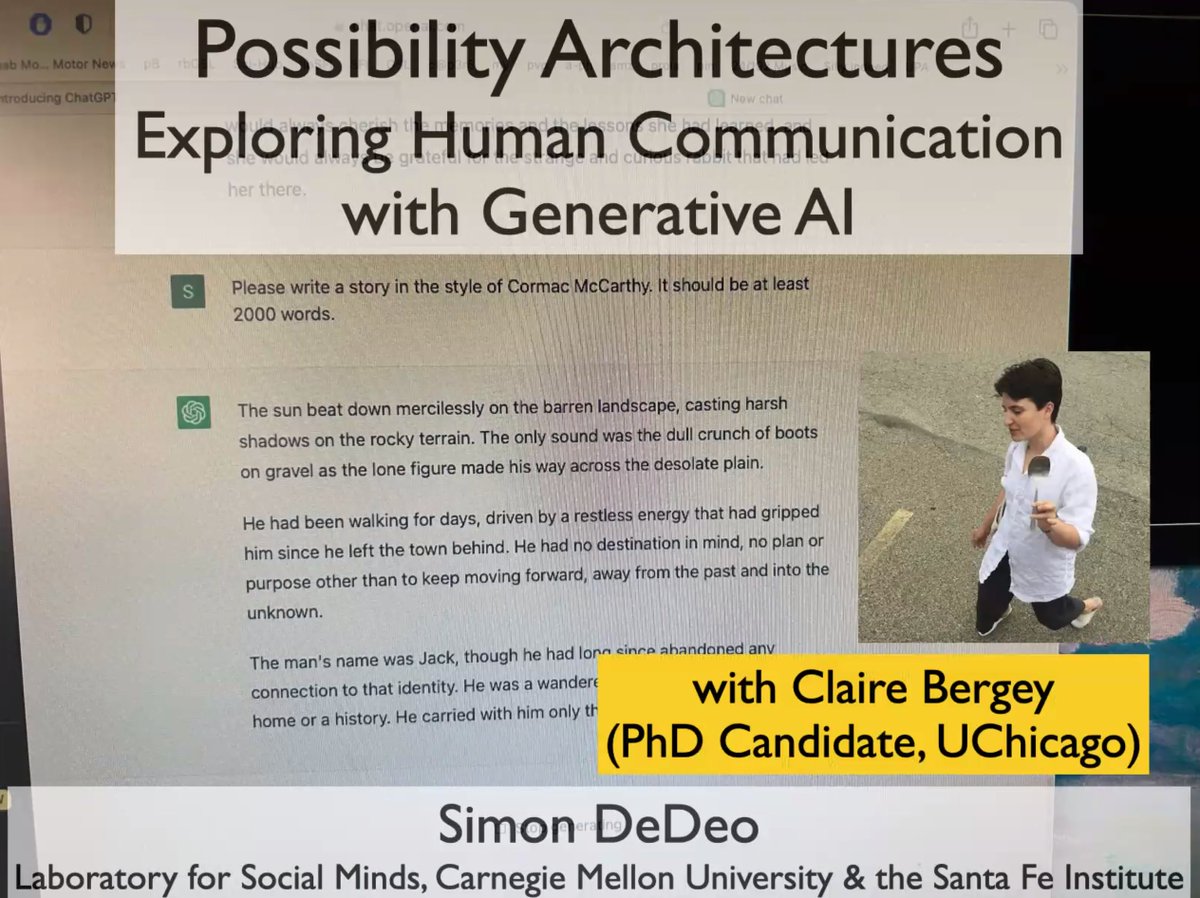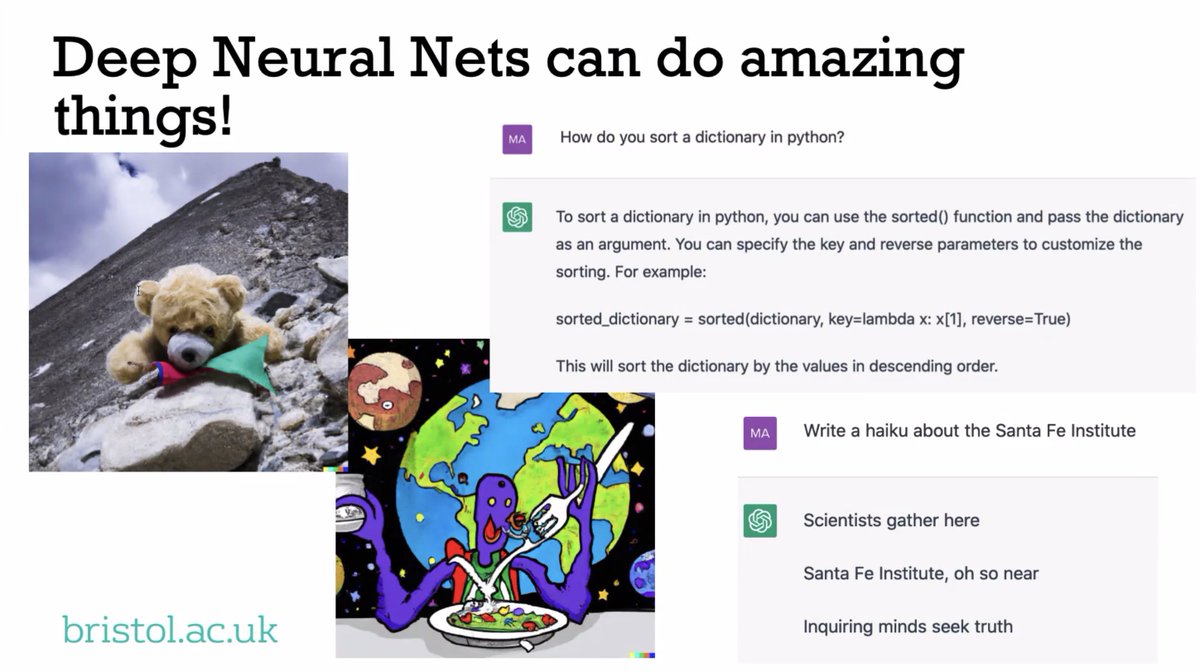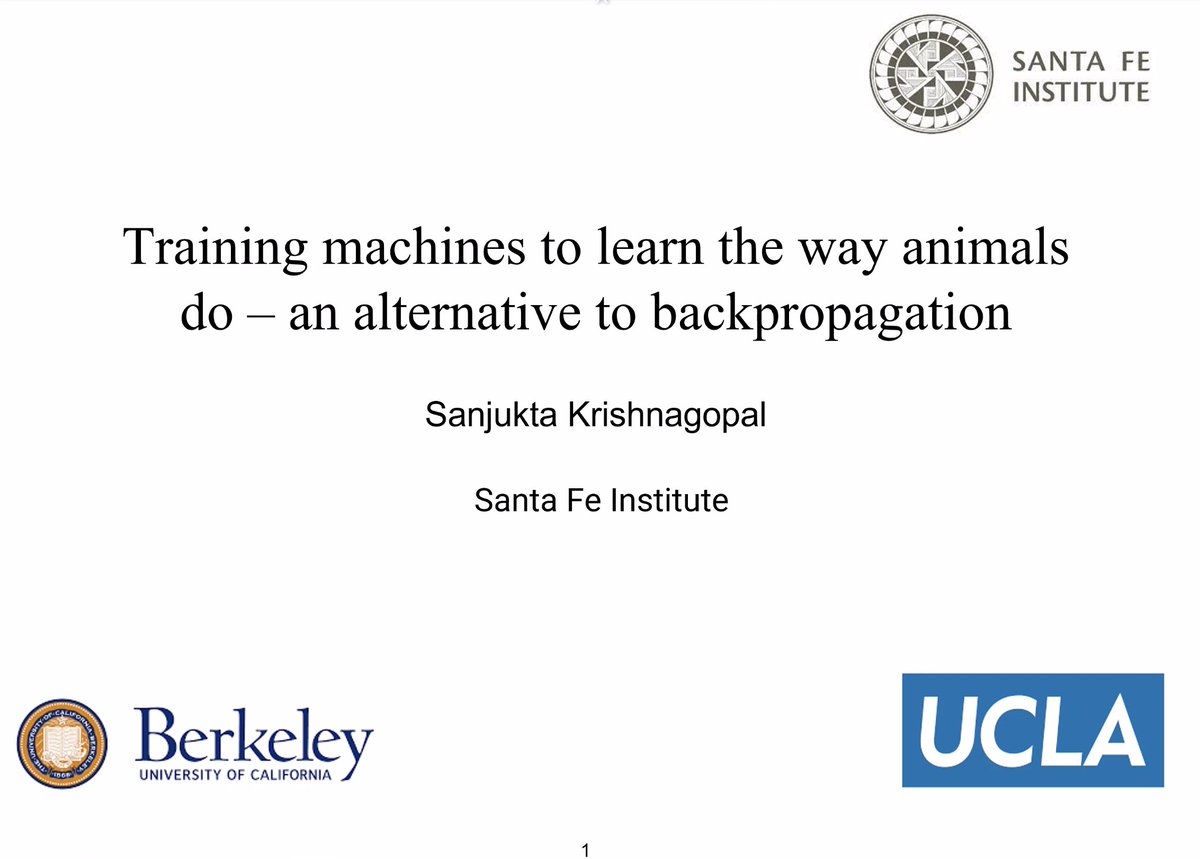"Life did not invent #DNA."
Experimental support for the #hotsprings hypothesis for life's origin: David Deamer of @ucsc on nucleic acid polymerization in the wet-dry cycling of Darwin's "warm little pond," powered by #geothermal. Lab results confirmed in #hydrothermal pools.



Experimental support for the #hotsprings hypothesis for life's origin: David Deamer of @ucsc on nucleic acid polymerization in the wet-dry cycling of Darwin's "warm little pond," powered by #geothermal. Lab results confirmed in #hydrothermal pools.




From "boring statistical partitioning" in the fission of early protocells to the complex #homeostasis-driven #mitosis of the cells we know - Doron Lancet of @WeizmannInstSci on the gradient between closure of #autocatalysis #networks to complex regulatory mechanisms of #biology. 






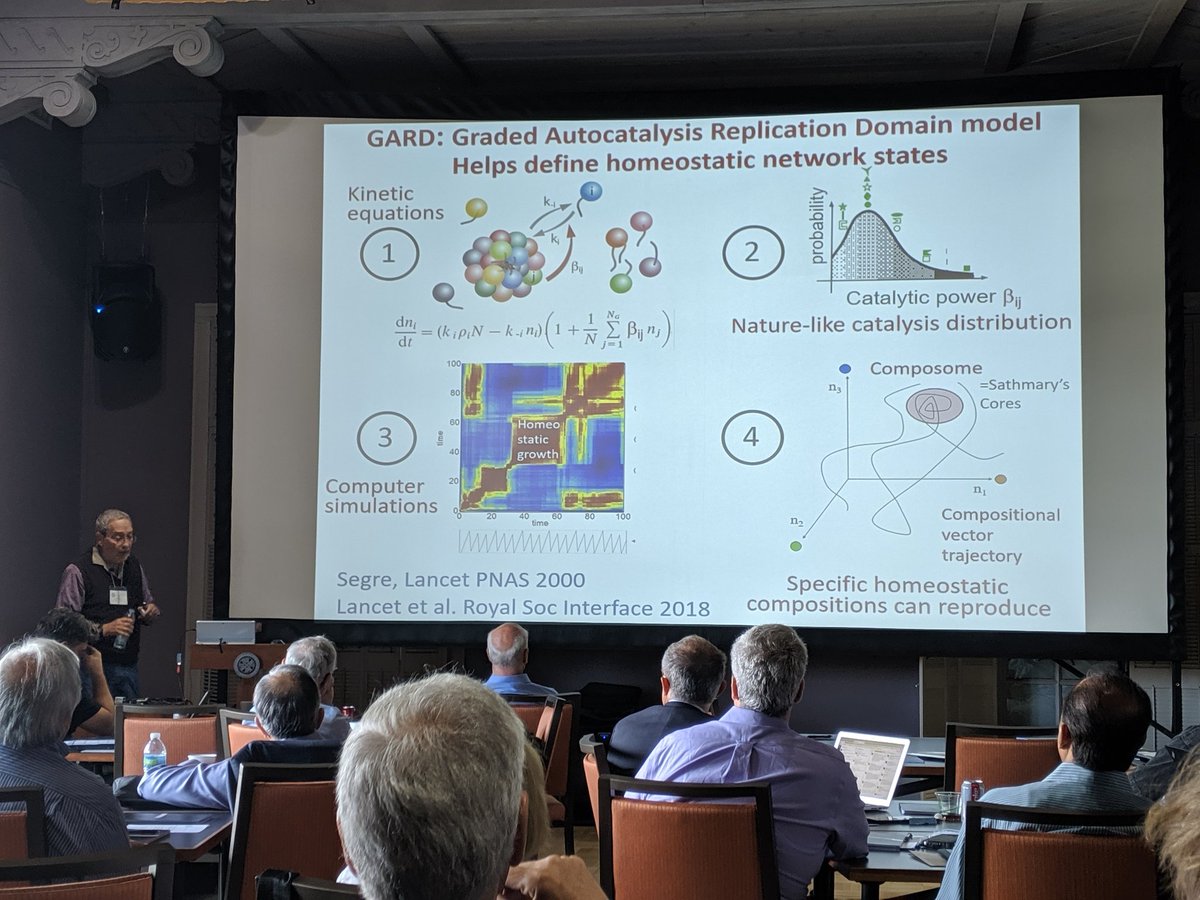
"Life is an integrated nested network of dynamic #kinetic cycles."
Addy Pross emphasizes the importance of motion to the persistent forms of self-organizing #complexsystems at SFI today



Addy Pross emphasizes the importance of motion to the persistent forms of self-organizing #complexsystems at SFI today




The #adjacentpossible: new possibilities emergent at the boundaries of an evolving system, ratcheting its way into more #novelty. @stevenstrogatz joins us remotely to explain the #math of how "one new thing leads to another"
#zipfslaw #evolution #technology



#zipfslaw #evolution #technology

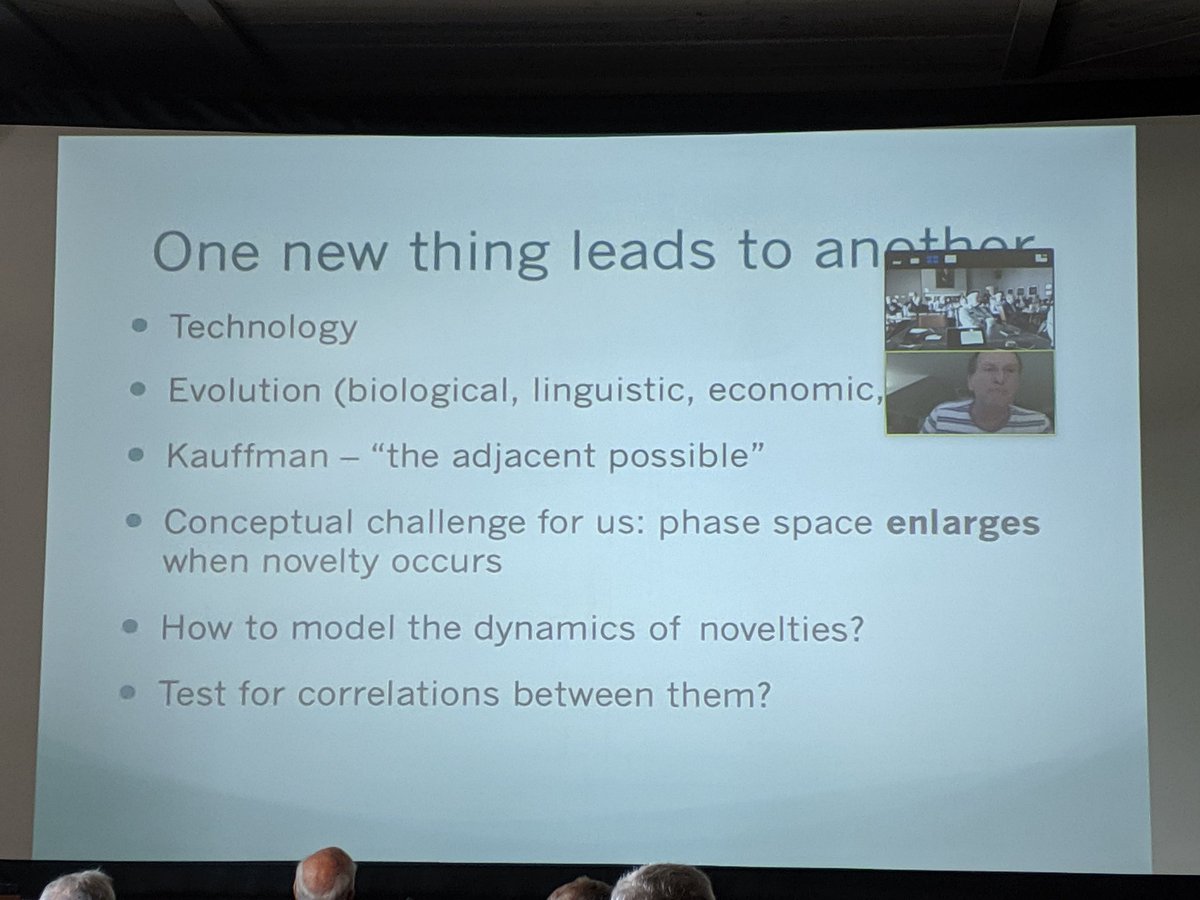


Exploring the boundaries of the possible expands those boundaries.
Vittorio Loreto on Sannon #entropy, #surprise, #novelty, and the #adjacentpossible at SFI today.
#PKD @loretoff



Vittorio Loreto on Sannon #entropy, #surprise, #novelty, and the #adjacentpossible at SFI today.
#PKD @loretoff




"The landscape is not just a metaphor."
On cells as attractors within the phase space of all possible interactions within gene regulatory networks: Sui Hang of @isbsci speaking on #cell types as literal basins into which #biology settles...
#embryogenesis #CellBiology



On cells as attractors within the phase space of all possible interactions within gene regulatory networks: Sui Hang of @isbsci speaking on #cell types as literal basins into which #biology settles...
#embryogenesis #CellBiology
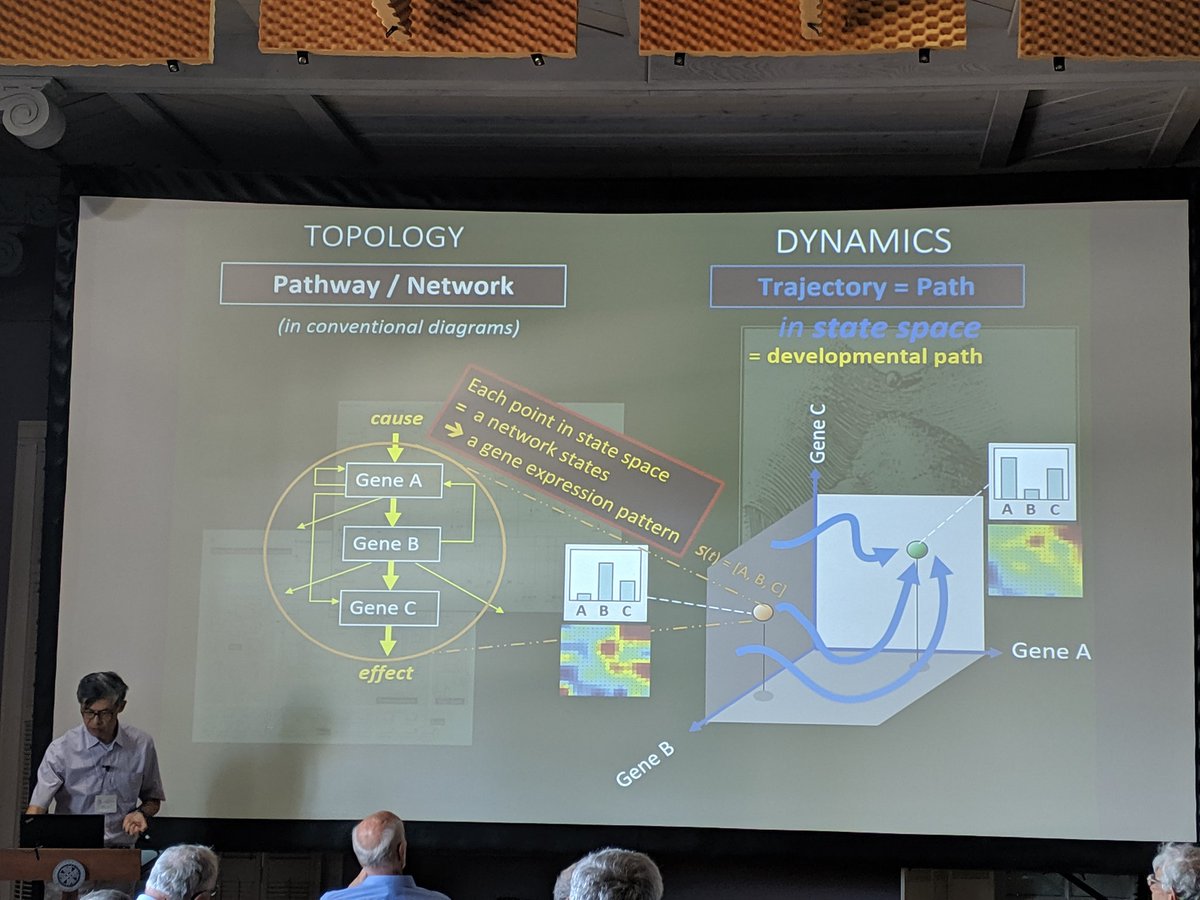
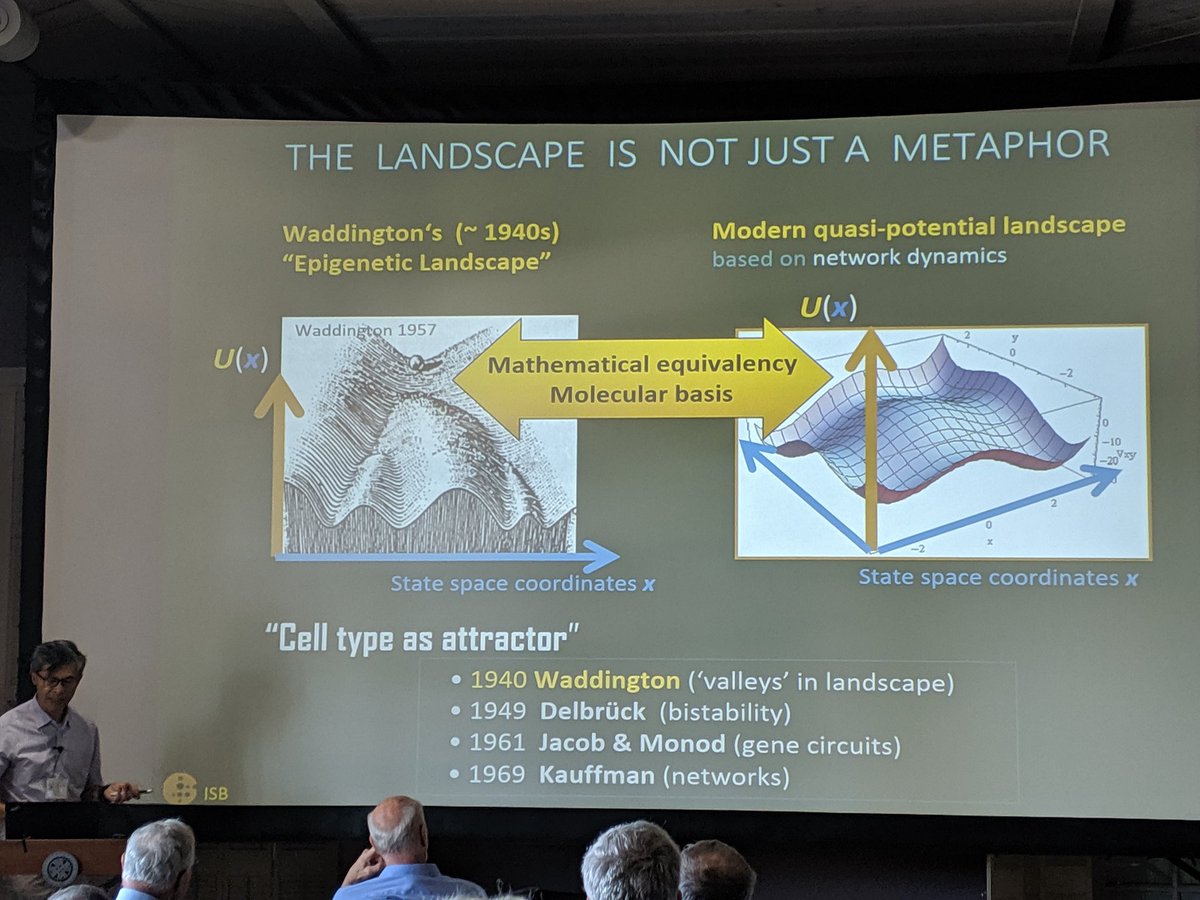
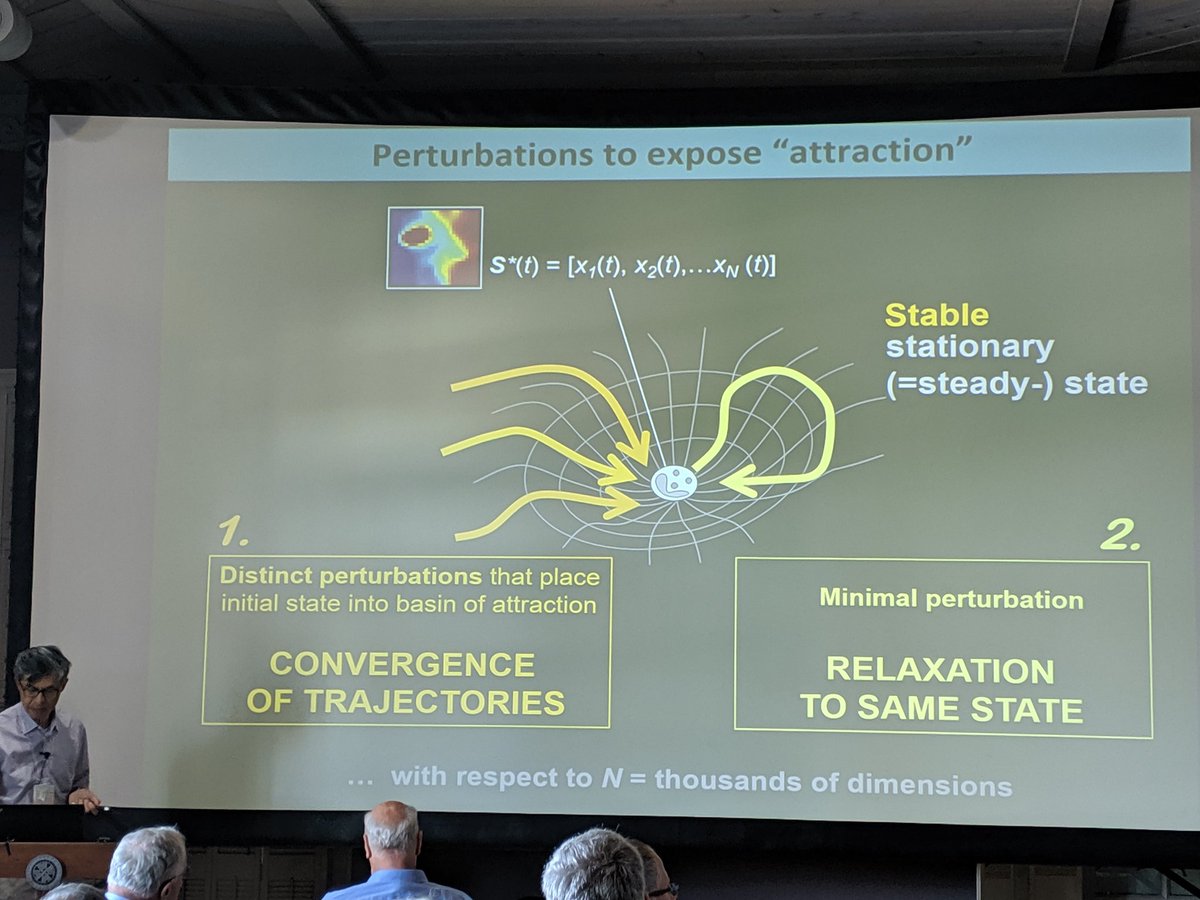
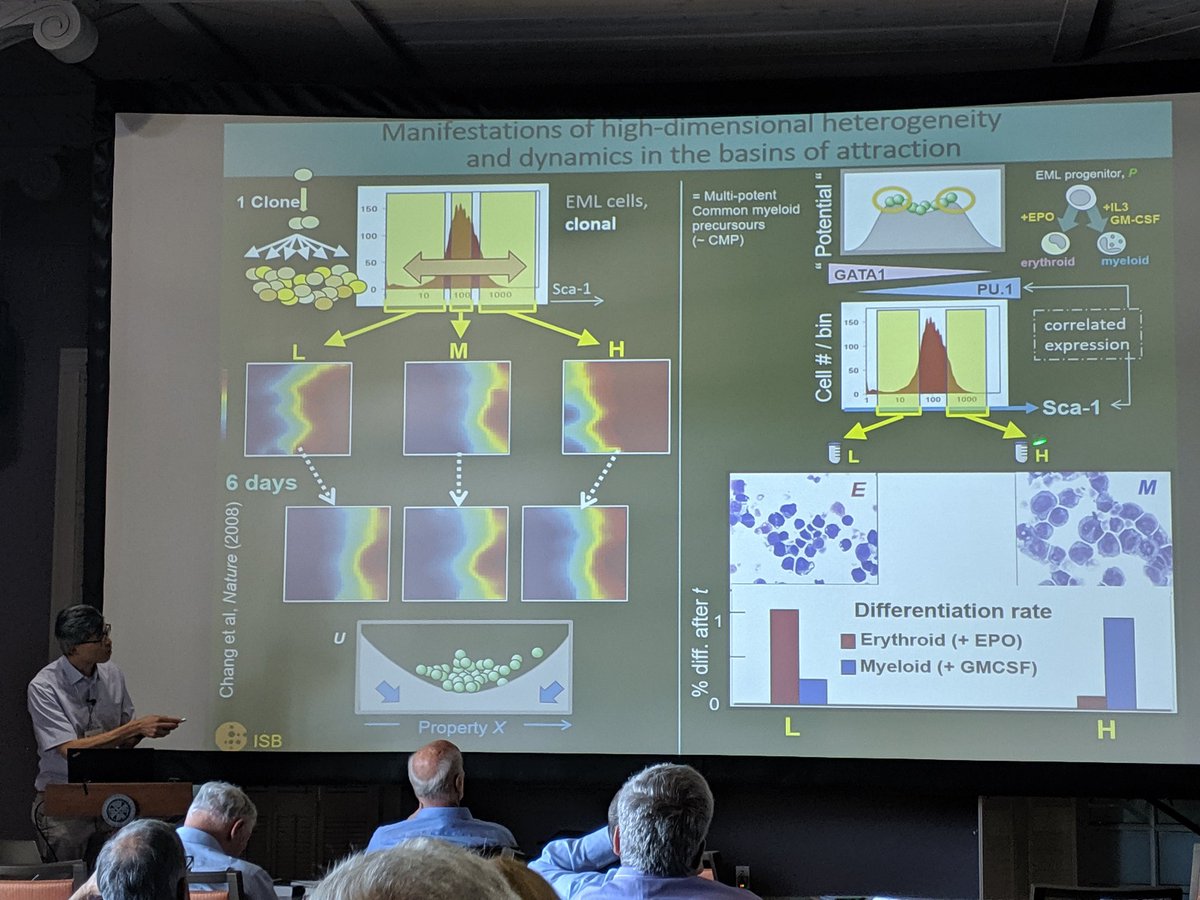
"What I'm really interested in is whether we can statistically determine living chemistries from non-living chemistries."
- @Sara_Imari of @ASU
A: Yes. #Criticality distinguishes living #networks, due to the relationship between #logic & #connectivity...
#boolean #astrobiology



- @Sara_Imari of @ASU
A: Yes. #Criticality distinguishes living #networks, due to the relationship between #logic & #connectivity...
#boolean #astrobiology




"If you think of as #Earth as a system exploring the #adjacentpossible, #Mars certainly isn't."
@Sara_Imari of @ASU on how to tell the difference between living & non-living planets, #biology from #randomness...
#scaling #criticality #astrobiology


@Sara_Imari of @ASU on how to tell the difference between living & non-living planets, #biology from #randomness...
#scaling #criticality #astrobiology



"It's just #networks of switches. Why should that model #biology?"
Stefan Bornholdt of @UniBremen at SFI today on the #emergence of synchrony in autonomous #Boolean networks, with implications for #attractor #scaling (# of cell types as function of gene regulatory network size).



Stefan Bornholdt of @UniBremen at SFI today on the #emergence of synchrony in autonomous #Boolean networks, with implications for #attractor #scaling (# of cell types as function of gene regulatory network size).
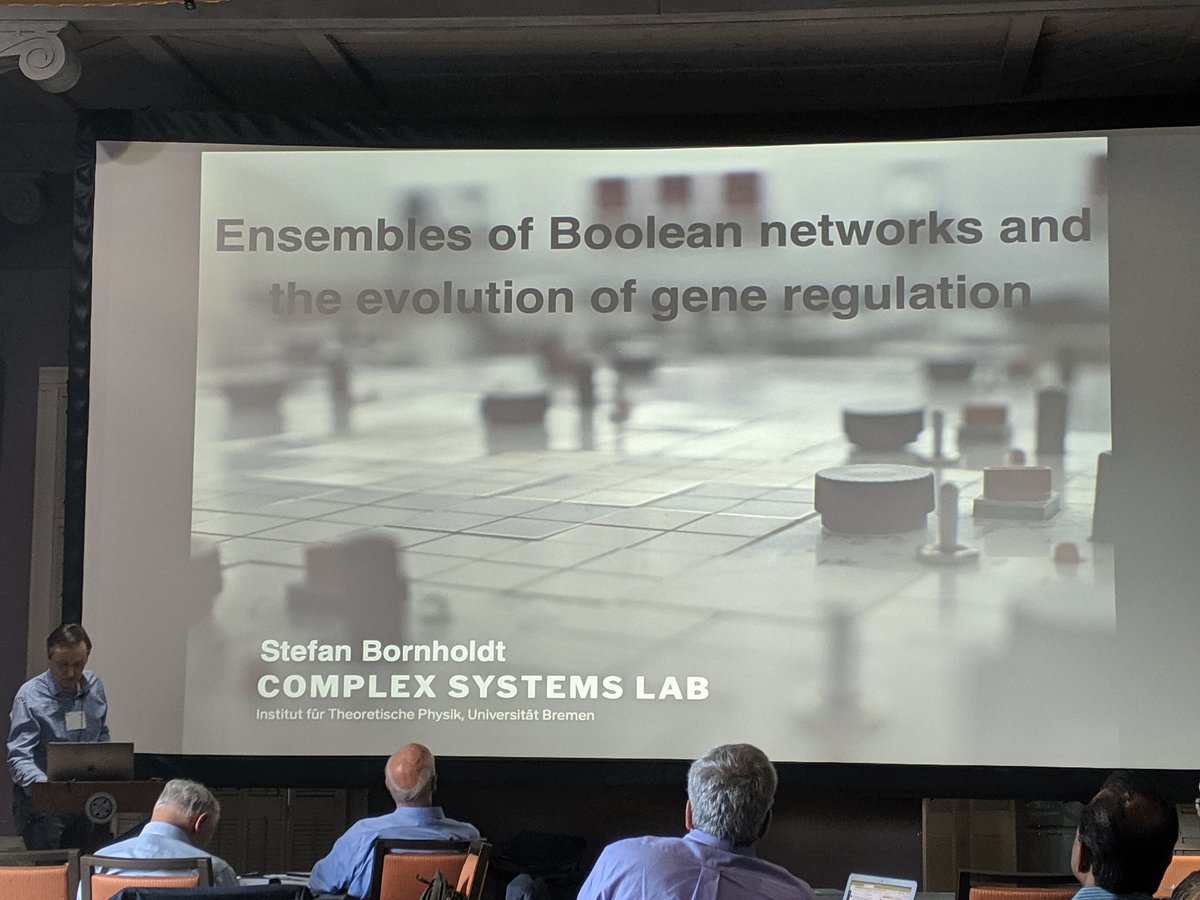



Stefan Thurner of @CSHVienna on the #combinatorial-#coevolutionary-#critical model of #evolution, which starts from amazingly simple premises to make meaningful predictions of major evolutionary transitions, economic phase shifts, bursts of product/species #diversity, and more... 







"What is the greatest source of #uncertainty in #climate forecast models? Us. Humans."
Brian Beckage of @uvmvermont on designing a Climate Social Model that includes crucial behavioral dynamics in #forecasting #climatechange.
Key point: #behavior matters as much as #physics.



Brian Beckage of @uvmvermont on designing a Climate Social Model that includes crucial behavioral dynamics in #forecasting #climatechange.
Key point: #behavior matters as much as #physics.




"Logical relations have physical consequences...but logical structures are not reducible to physical structures."
Philosopher of Science Michael Epperson (@calstate) on how Descartes gets in the way of understanding #quantumphysics, & how to grapple with #duality & #potential.



Philosopher of Science Michael Epperson (@calstate) on how Descartes gets in the way of understanding #quantumphysics, & how to grapple with #duality & #potential.




When it comes to living systems, #science ought to give up on the search for universal laws, says Maël Montévil at SFI today - the path-dependency and inability to prestate function means no entailment, *but enablement*, in #biology: 



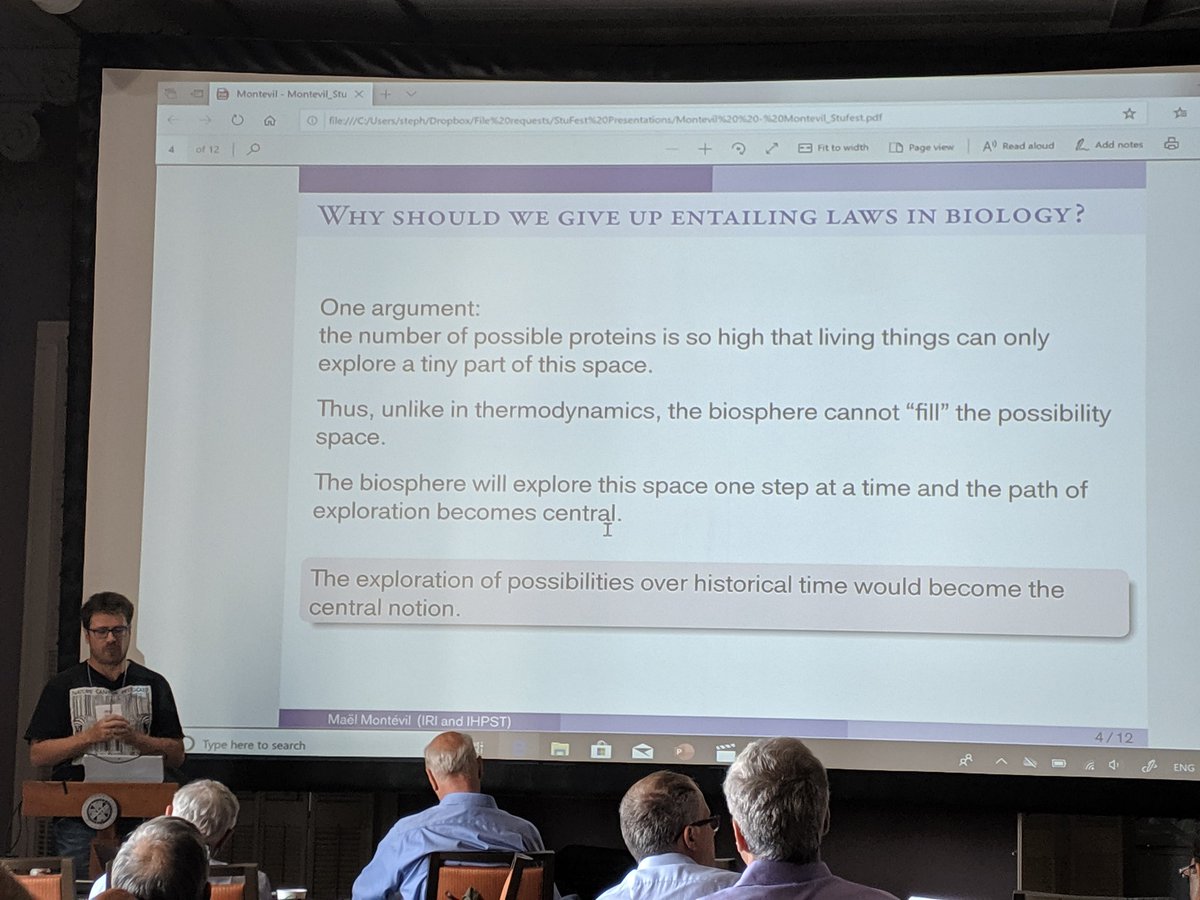



• • •
Missing some Tweet in this thread? You can try to
force a refresh



